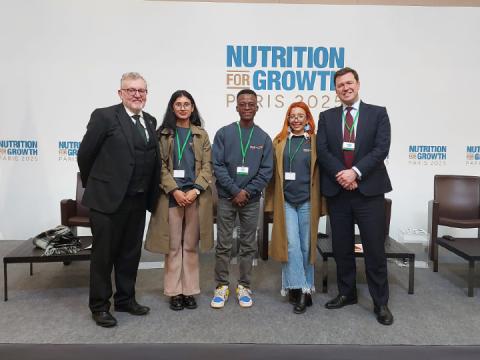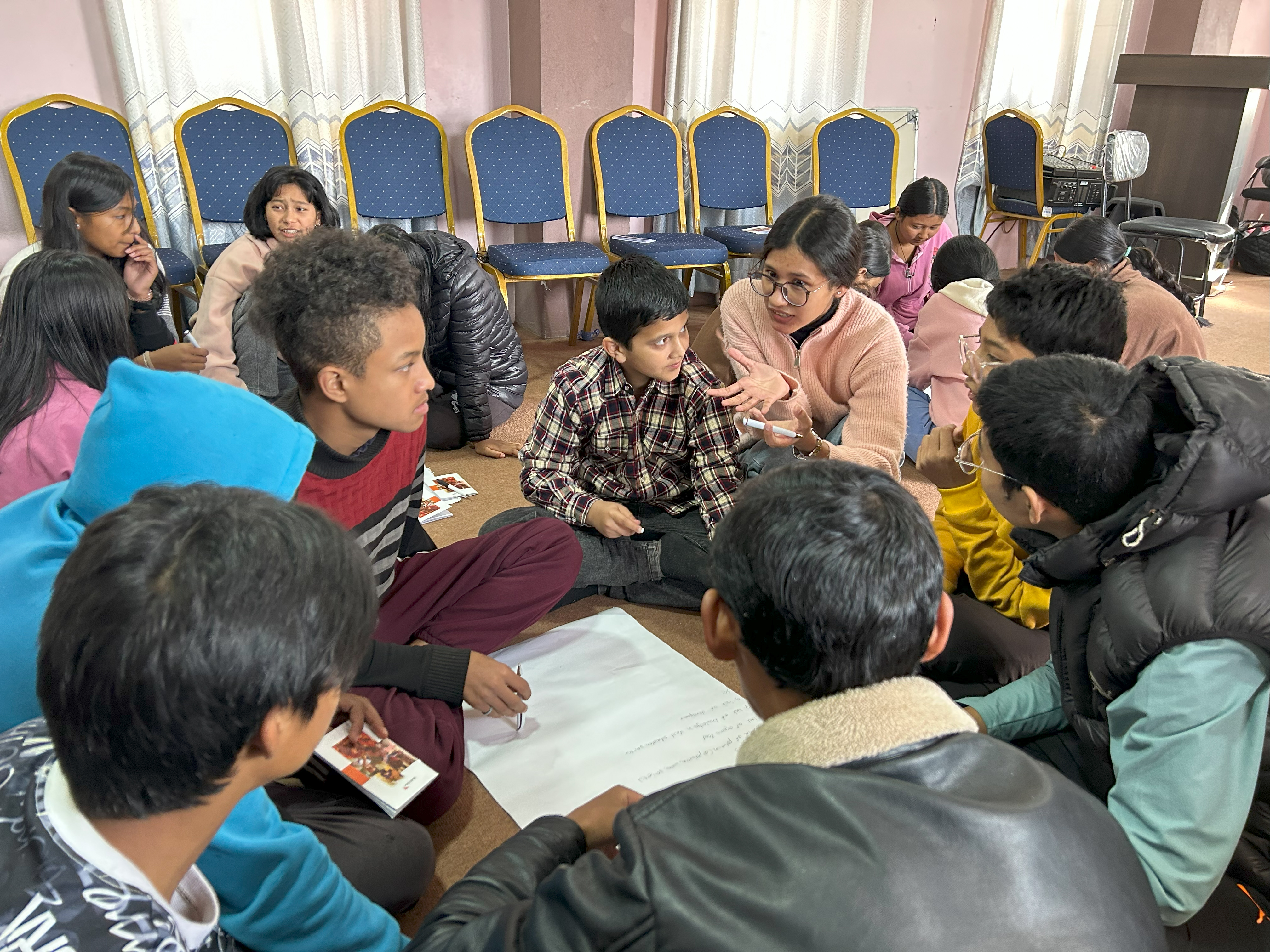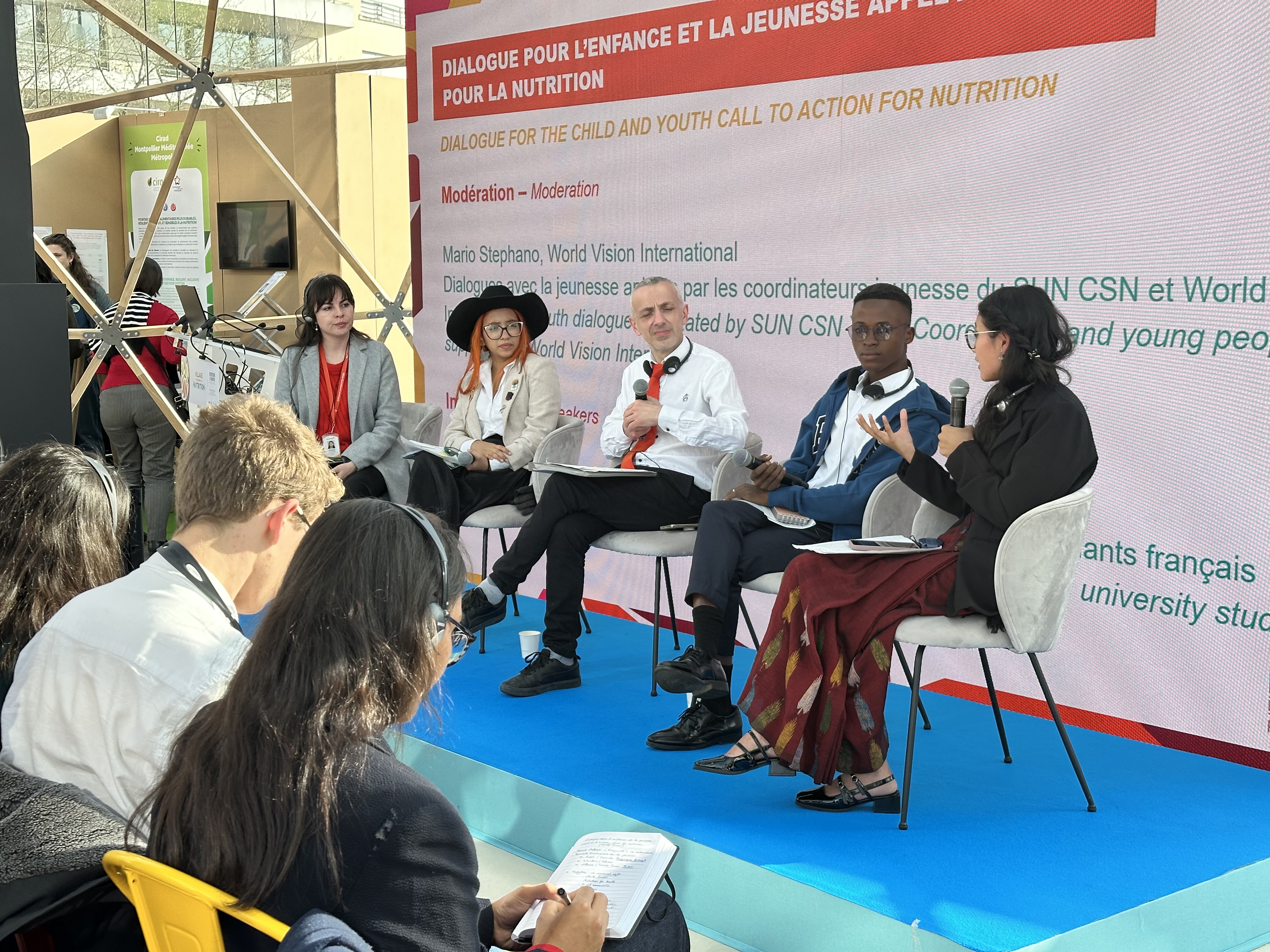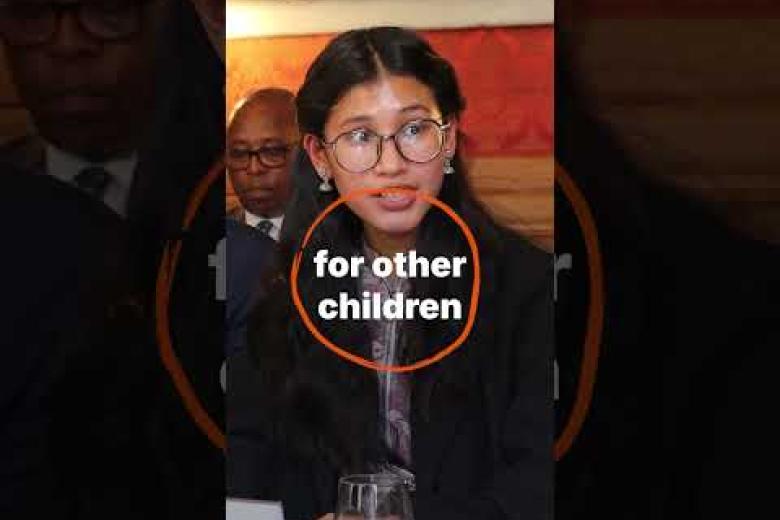Children at the Forefront of Nutrition Advocacy: Sunischita’s Voice at the N4G Summit 2025

A Global Stage for Child Voices on Nutrition
The year 2025 marks a pivotal moment in the global fight against malnutrition. As the final year of the UN Decade of Action on Nutrition and a time to renew WHO’s global nutrition targets, it also witnessed the Nutrition for Growth (N4G) Summit hosted in Paris from 27–28 March. In preparation for this landmark gathering, World Vision International, in partnership with the 4SD Foundation, launched a series of global Nutrition Dialogues to elevate the voices of those most affected by hunger—especially children.
In Nepal, World Vision International Nepal (WVI Nepal) organised three child-focused and four stakeholder dialogues between August and December 2024 across both urban and rural communities. These sessions served as safe spaces for children to reflect on their lived experiences of hunger, their understanding of nutritious food, and their ideas for more accessible, sustainable nutrition services. The insights collected were used to co-develop a call to action, which would soon travel with them to a global platform.
Among those selected to carry this message forward was Sunischita, a child advisor and advocate from Nepal, who was chosen to represent the voices of children at the N4G Summit in Paris alongside peers from Colombia and Sierra Leone.

From Local Dialogues to Global Advocacy in Paris
The participation of child delegates in the N4G Summit was not limited to a ceremonial presence—it was dynamic and deeply embedded in the week’s programming. The engagement began with visits to Collège Sévigné and Lycée Jean-Pierre, where Sunischita and her fellow delegates met French students aged 14–17. They shared personal stories from their communities and introduced the jointly developed Call to Action, sparking rich discussions on both global and local nutrition issues.
French students offered fresh insights—raising concerns around obesity, processed foods, and carcinogenic substances in agriculture. They proposed expanding the dialogue to include sustainability and digital advocacy, suggesting platforms like TikTok and Instagram as tools to reach young audiences globally. This exchange emphasised the universality of nutrition challenges and the importance of youth-driven storytelling and awareness-raising.
Beyond the schools, the child delegates took their message to global leaders during a high-level event at the Irish Embassy in Paris. Addressing an esteemed audience that included His Majesty of Lesotho, the Ambassador of Ireland to France, senior representatives from WFP, WHO, SUN, and global ministries, Sunischita made an impassioned plea:
“I urge you to act because you have the ability and power to mobilize resources and take the right steps to make a community where no children have to go to sleep hungry and suffer due to malnutrition.”
Her words struck a chord, reminding the audience that nutrition is not just a development priority but a matter of justice and dignity for children worldwide.
Delivering the Call to Action and Shaping Global Commitment
One of the most powerful moments of the N4G Summit occurred during the Village of Solutions at Citroën Park. Here, a final stakeholder dialogue, moderated by Mario Stephano, brought together actors from civil society, government, youth networks, and the private sector. As panelists, the child delegates helped refine the Call to Action by integrating feedback from global peers, including French students and SUN Civil Society Network representatives.
A unifying message resonated throughout the dialogue: “Nothing for young people without young people.” Stakeholders underscored the need for inclusive decision-making, stronger multi-sectoral collaboration, and child-friendly accountability mechanisms. There was consensus that cultural context, climate change, and water and sanitation (WASH) must be integrated into nutrition planning.
Following this collaborative process, the final version of the Call to Action was completed and formally delivered on March 28 during the closing ceremony at the French Ministry of Foreign Affairs. Child delegates met with the Minister Delegate for Francophonie and International Partnerships of France, participated in a press conference, and presented the Call to Action to global leaders in the summit’s closing plenary.
Their appeal called for national governments to ensure access to nutritious food, clean water, job opportunities, community education, climate adaptation strategies, and inclusion of youth voices in policymaking. Their message was clear: malnutrition cannot be solved without the participation and leadership of children and young people.

A Lasting Impact and the Way Forward
The participation of children in the Nutrition for Growth Summit 2025 demonstrated the transformative potential of child-led advocacy. From co-creating solutions in local communities to standing before global dignitaries, the journey of Sunischita and her peers symbolised a shift in how the world approaches nutrition governance—not as something done for children, but with them.
Sunischita’s personal reflections from the summit highlighted several systemic barriers: lack of awareness about nutrition, reliance on processed foods, absence of homemade meals in schools, and limited livelihood opportunities in her community. She proposed solutions such as expanding agricultural training for youth, strengthening school-based nutrition education, and leveraging social media to spread awareness. Her closing statement reinforced a core message:
“If given the right opportunities, children can help create a world where no one must suffer from hunger or malnutrition.”
Through initiatives like the ENOUGH campaign, World Vision International Nepal continues to amplify the voices of children in national and global advocacy. The outcomes of the N4G Summit reaffirmed that youth participation is not an optional add-on—it is a prerequisite for building a just, nourished, and equitable future.
Learn more about the ENOUGH Campaign at www.wvi.org/ENOUGH
